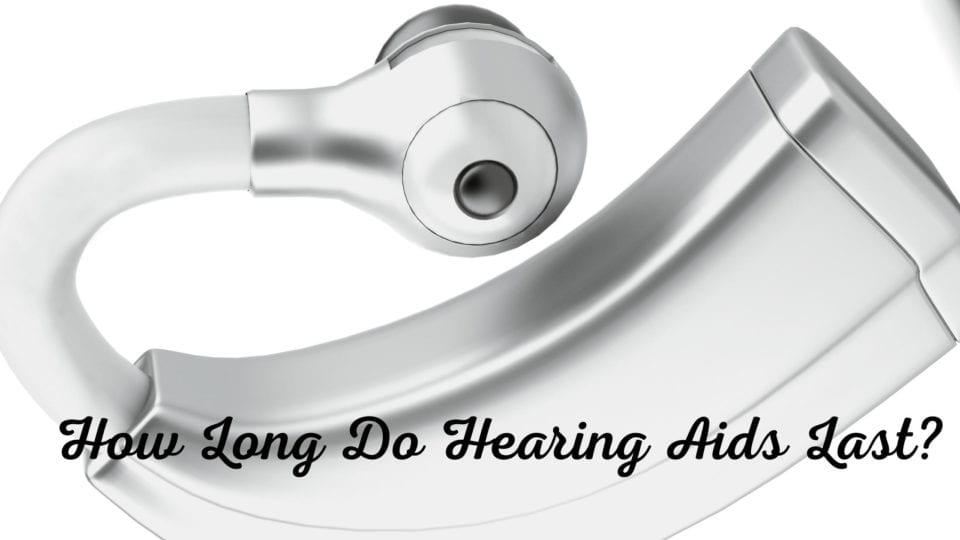- The Emotional Journey of Accepting Hearing Loss - October 25, 2024
- Making a Style Statement with Hearing Aids This Fall - October 15, 2024
- Fireplace Safety and Hearing aids - October 4, 2024
Suppose you’ve recently purchased a new set of hearing aids. In that case, you’re probably thrilled with the positive influence they’ve had on your social life! Hearing aids make communication easier, boosting your self-esteem, confidence, and sense of independence.
Hearing aids improve your quality of life in various ways, including your relationships, profession, cognitive health, and overall physical health. You’ll want to take good care of these incredible products so you can spend as much time as possible with them. Hearing aids are an expensive and necessary investment, but how long can you expect them to serve you?
A Hearing Aid’s Life Expectancy
Hearing aids typically last between three and seven years. While this may not appear to be a long time for your purchase, consider the amount of labor a hearing aid performs daily. Hearing aids are worn from when you get out of bed until you sleep. They should only be removed for bathing, swimming, or lying down. This is a significant amount of time to power a device over many years, especially when it comes to a product as important as hearing aids.
Hearing aids are necessary for communicating with friends and family, but they are also necessary at work. Hearing aids allow you to be more aware of the sounds around you, which keeps you and the people around you safe.
Longevity and the Hearing Aid Model
You may receive less or more time with your hearing aids, depending on the design you choose. For example, in-the-ear models are popular because they are more discreet. Still, they typically survive four to five years because they are exposed to more dirt and moisture in the ear canal. On the other hand, larger behind-the-ear hearing aids have a five- to six-year lifespan thanks to more robust construction and a housing compartment that sits on your ear rather than inside your ear.
Upkeep of Hearing Aids
How you care for your hearing aids is one factor that can help them last as long as possible. These are highly complex and tiny machines that regularly perform a great deal of work for you. Keeping your hearing aids clean and inspecting them for deterioration before it becomes a significant problem is critical to extending their life.
- Your hearing aids are exposed to sweat, skin oil, dampness, dust, and various other factors daily. Cleaning your hearing aids with a soft dry cloth before bedtime should be part of your pre-bedtime routine.
- Inspect your hearing aids for cracks that could worsen and expose them to moisture, which could cause the electronic components to short circuit.
- Learn everything you can about your hearing aids so you can notice a problem before it becomes worse.
- It’s also a good idea to invest in a dehumidifying case while storing your hearing aids overnight. They can be stored in a case when charging a battery or just while sleeping to prevent sweat and moisture from accumulating during the day.
Hearing Aids Have Improved
Hearing aids have come a long way in the last decade and show no signs of stopping down. Hearing aids today excel because they may be programmed particularly for your unique hearing loss, even if they don’t have all the bells and whistles. Bluetooth compatibility, rechargeable batteries, background noise suppression, tinnitus masking, and even artificial intelligence adaptability are features of today’s hearing aids.
If you’re still using an old pair of hearing aids, you might want to see what you’ve been missing out on. You might come upon features that you can’t live without! Please get in touch with us to learn more about the advances in hearing aids that may benefit you.
Keeping an Eye on Your Hearing Needs
Continue to keep an eye on your hearing ability. Hearing loss is a progressive disorder, which means that your hearing can alter over time, even with hearing aids. If your hearing has changed, we can usually reprogram a hearing aid to function for you again. However, you may find that you require hearing assistance with greater strength or functions as time goes on.
We can help you continue to have the best listening experience possible to focus on your life rather than worrying about your hearing. Contact us today to schedule a consultation!

